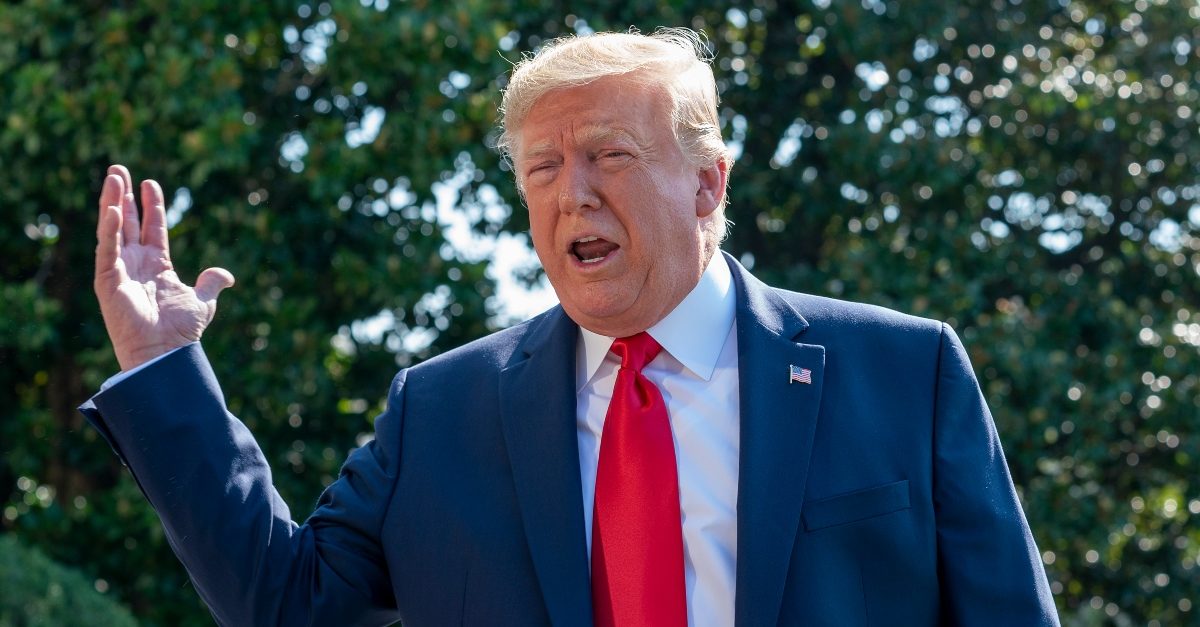
The Senate Intelligence Committee on Tuesday released its report on the Jan. 2017 Intelligence Community Assessment (ICA), the fourth volume of the panel’s larger probe into the intel community’s investigation of Russian interference in the 2016 presidential election. The heavily redacted report re-affirmed the ICA’s findings, mainly that the Steele Dossier played no role in the FBI’s decision-making process and that President Vladimir Putin directed the Russian interference campaign with the intent to help President Donald Trump. Notably, the report also found no evidence that Trump’s campaign coordinated any activities with the Russian government.
In the 158-page report, the committee concluded that the analysts who completed the ICA were under “no politically motivated pressure to reach specific conclusions,” and that the agencies responsible for the ICA (CIA, NSA, and FBI) successfully compiled a product reflecting the best available intelligence regarding Russian activity.
“The ICA reflects strong tradecraft, sound analytical reasoning, and proper justification of disagreement in the one analytical line where it occurred,” recently controversial Senate Intel Committee Chairman Richard Burr (R-N.C.) said in a statement accompanying the report’s release. “The Committee found no reason to dispute the Intelligence Community’s conclusions.”
The Steele Dossier
Most notably, the report provided further evidence that the infamous Steele Dossier played no role in the intel community’s investigatory decisions.
“All individuals the Committee interviewed stated that the Steele material did not in any way inform the analysis in the ICA – including the key judgments – because it was unverified information and had not been disseminated as serialized intelligence reporting,” the report stated on page 50, noting that Steele’s information was only included in an annex of the ICA.
Russia Interfered to Help Trump
The report also confirmed the intelligence community’s conclusion that “the manner and aggressiveness of the Russian interference was historically unprecedented,” stating that “President Putin approved and directed aspects of this influence campaign.”
The objective of Putin’s interference campaign was not only “to denigrate then-candidate [Hillary] Clinton,” but also to boost Trump’s electoral prospects.
“The Committee found that the ICA presents information from public Russian leadership commentary, Russian state media reports, and specific intelligence reporting to support the assessment that Putin and the Russian Government demonstrated a preference for candidate Trump,” the report stated.
The CIA and FBI had “high confidence” in this assessment of Russian leadership’s intentions, while the NSA had “moderate confidence.”
No Evidence of Coordination Between the Trump Campaign and Russia
None of the National Intelligence Officers (NIO) questioned by the committee said they came across any evidence that the Trump administration coordinated any activities with the Russian government.
“The Committee asked the NIOs who worked on the ICA how they handled the question of whether activities were being coordinated between the Russian government and the Trump Campaign. The NIO for Russia and Eurasia responded that ‘it did not come up . . .. We didn’t have any evidence for that. There was not information that pointed us in that direction,’” the report stated. “The NIO for Cyber Issues stated ‘[w]e rely on our FBI colleagues to bring it up. But it was not discussed.’”
Conclusions
While the committee’s conclusions have ultimately been entrenched truths in the intelligence community for years, national security experts emphasized that foreign interference remains a very real threat in the upcoming November election.
“Once again, we are reminded of the unprecedented effort by the Russians to interfere with the 2016 election, and the fact that President Trump routinely downplayed it and even appeared to accept President Putin’s denials,” national security attorney Bradley P. Moss told Law&Crime. “With similar disinformation efforts already ramping up for 2020, we need to remember the past lest we repeat our mistakes and stand idly by while the public is misled by foreign actors.”
[image via Tasos Katopodis/Getty Images]